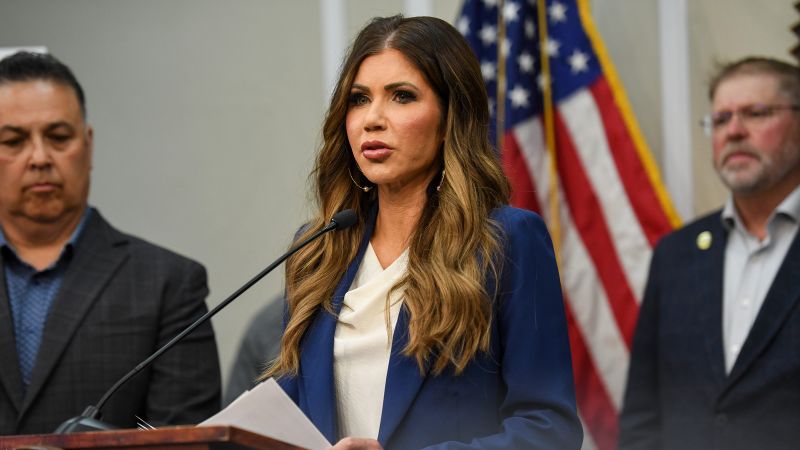South Dakota’s nine indigenous tribes have unanimously voted to ban Gov. Kristi Noem from their lands, with the Flandreau Santee Sioux Tribe being the latest to make this decision. This ban stems from comments made by Noem earlier this year, where she suggested tribal leaders were profiting from drug cartels on reservations. Noem has since doubled down on these remarks, leading to a backlash from tribal nations in the state. The Flandreau Santee Sioux Tribe held an emergency meeting in response to Noem’s comments, leading to a productive conversation between President Reider and the governor’s office. However, the ban will remain in place until Noem clarifies her statements and issues an apology to all tribal nations, as recommended by the tribe’s executive council.
The ban on Noem from tribal lands has been a ripple effect among South Dakota tribes, with the Sisseton Wahpeton Oyate Tribe, Yankton Sioux Tribe, Standing Rock Sioux, Crow Creek Sioux, Rosebud, Cheyenne River Sioux, Oglala Sioux, and Lower Brule Sioux tribes all taking similar actions earlier this year. Noem, in response to the ban, expressed her hope to work with tribal leaders in the future to address the challenges faced in Indian Country. She emphasized the importance of tackling issues such as violence, illegal activities, and addiction through cooperation, rather than political attacks. Noem’s public statements on border security and the so-called invasion of immigrants from Mexico have also heightened tensions with tribal nations in the state, further complicating the relationship between the governor and indigenous communities.
Noem’s ban from tribal lands comes amidst controversy over anecdotes in her newly released book, including questionable claims about interactions with Kim Jong Un and Emmanuel Macron. This controversy has tarnished her standing and potential future political aspirations, as she was previously considered a potential vice presidential candidate for the 2024 election. Despite attempts to address concerns about her book’s accuracy, Noem has continued to focus on issues like border security and criminal activity, reaffirming her commitment to tackling these challenges. She has also highlighted efforts to improve tribal law enforcement in South Dakota, with new programs and appointments aimed at enhancing cooperation and training for local law enforcement agencies.
The ban on Noem from tribal lands reflects a broader trend of indigenous communities asserting their autonomy and pushback against political figures seen as disrespecting or marginalizing Native American interests. The ongoing tensions between Noem and tribal nations highlight the importance of respectful and inclusive dialogue between government officials and indigenous leaders to address longstanding issues and build stronger relationships. Moving forward, it will be crucial for all parties involved to engage in meaningful discussions and collaboration to work towards solutions that benefit all residents of South Dakota, regardless of their background or political affiliations. This situation serves as a reminder of the complex dynamics at play in the relationship between state governments and indigenous communities, emphasizing the need for mutual respect, understanding, and cooperation in navigating challenging issues and promoting positive change.













